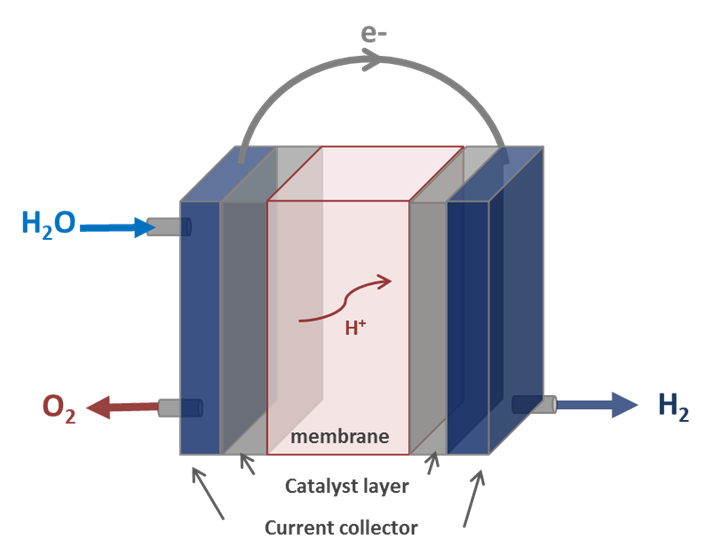Performance of novel electrocatalysts and proton exchange membranes with an electrolysis test station
Equipment, AAP 2018-2
Team: Nanomatériaux pour l’énergie, l’environnement et la catalyse, NE2C
Project leader: Jennifer Peron
Abstract:
Water electrolysis, and in particular Proton Exchange Membrane Water Electrolysis (PEMWE), is one of the clean technologies being considered to produce green dihydrogen, but the price of electricity needed for the water splitting still impedes its large-scale development. For this reason, extensive research is currently done to develop highly efficient and stable materials including catalysts for the hydrogen evolution reaction and the oxygen evolution reaction as well as proton conducting membranes. Great challenges have still to be overcome in term of efficiency notably to decrease the overpotential associated with the water splitting reaction, in term of stability of the catalysts and the membrane and in term of cost for the whole membrane-electrode assembly (MEA).
This project consists in acquiring full equipment for the preparation of membrane-electrode assemblies (MEA) and for testing these MEAs in an electrolysis device. It includes a hydraulic heating press, a DI water production system, and a Proton Exchange Membrane (PEM) water electrolysis test station (including impedance spectroscopy). This equipement will allow testing the materials performances and stability in real operating conditions.
This equipment is dedicated to teams working from materials synthesis to electrochemical testing. It aims at bridging the gap between fundamental academic research and industries currently involved the hydrogen production using PEM water electrolyzers.

Themes: